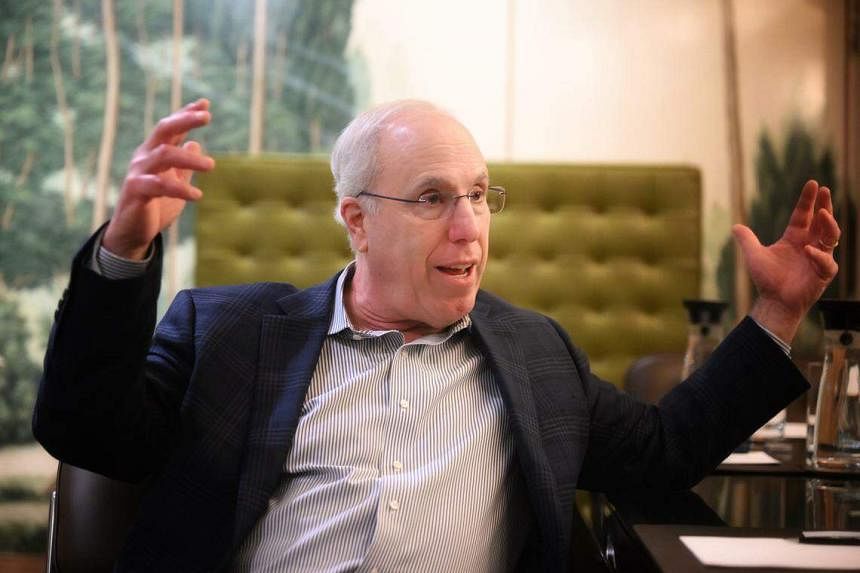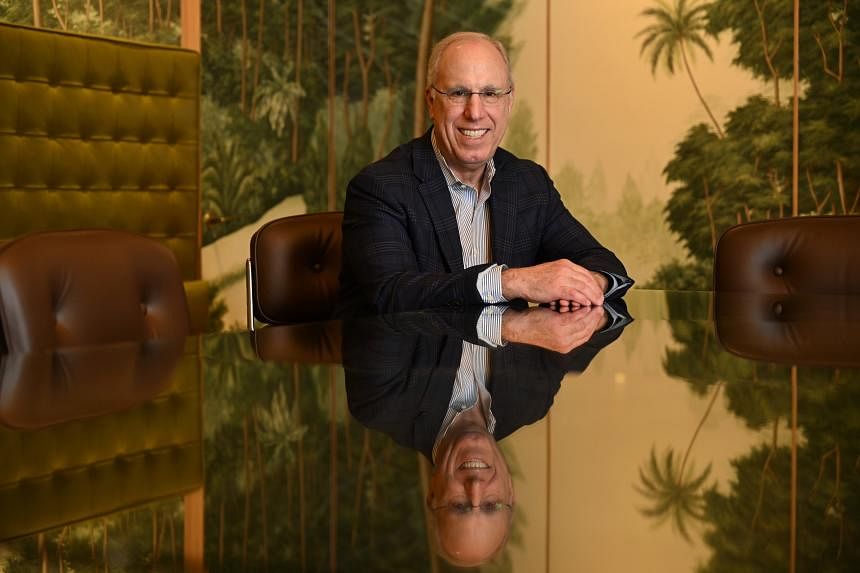Babson College president Stephen Spinelli turns the idiom “practise what you preach” on its head; he preaches what he’s practised.
As the leader of the top graduate school for entrepreneurship in the United States, Dr Spinelli knows something about starting businesses. At 23, his college football coach in Massachusetts, who had an entrepreneurial bent and an eye for talent, invited him to work for him in a private nursing home he ran in the mid-western town of Clinton, Iowa.
It was clearly something of a test for the East Coast born and raised Dr Spinelli, and he seemed to have passed it because the coach subsequently picked him and a few others he had similarly coached and asked if they’d like to join in a business venture with him.
Quite by serendipity, the team chanced upon a shop in Ogden, Utah, in front of which cars were lined up, waiting for an oil change. Sensing the market opportunity to do this more efficiently, the coach and his boys bought into the store that would later expand into the Jiffy Lube chain of speciality automotive oil change shops. Jiffy Lube would ultimately end up in the hands of Shell.
The US$100,000 or so Dr Spinelli borrowed from his in-laws for his share of the Jiffy Lube partnership proved to be a terrific investment. Even more rewarding was the experience of directly owning a few of the Jiffy Lube franchises in Massachusetts and Connecticut.
And yet, the feeling persisted that he hadn’t succeeded as much as he could have, that he didn’t know enough.
When Dr Spinelli looked around for a nearby college where he could hone his entrepreneurial skills, only one in a 145km radius seemed to have a programme in that discipline – Babson. So, every Thursday night, for seven years, he drove down to Babson to attend classes, eventually gaining a Master of Business Administration and plenty of smarts that helped him grow his franchise.
“It was the first time that the learning and action were intimately integrated,” he recalls. “I would take a class (in an area of business) that I was having a problem with. I used it almost like a form of consulting. My business grew like crazy and when I sold it I said, ‘Now that I am not needy, I need to study more.’”
Not surprisingly, when he went on to do a doctorate in economics at London’s Imperial College, the thesis he picked was franchising – the macroeconomics of the franchisor and the microeconomics of the franchisee. “I built out that model significantly, and still have a ball with it.”
These days, in addition to running Babson College, which he has done since 2019, the 69-year-old millionaire chairs the board of the Planet Fitness franchise – the largest company in its space.
“Talk about deep intellectual study being put in actual practice and creating an explosion – and that’s what Babson is about,” he says.
Can entrepreneurship be taught, really? Inventor Thomas Edison originated the proverb that success is 10 per cent inspiration, and 90 per cent perspiration.
“One of the reasons there was only one school for entrepreneurship – Babson – for a long time was because people believe you couldn’t teach it,” he responds. “Today, there are probably 3,000 business schools that teach it. We have proven you can.”
Indeed, he says, learning entrepreneurship is an imperative in this day and age. The pace of change, the interface of technologies, the rapid evolution of business models – all are well suited to the entrepreneurial process in an entrepreneurial mind.
Entrepreneurship, therefore, has moved from a can’t-be-taught subject to a should-be-taught and, increasingly, must-be-taught one.
What about all this talk about entrepreneurial chief executives, continuous disruption and business leaders seeking to disrupt their own companies?
Dr Spinelli says there is widespread recognition that the pathway ahead for business is going to be very choppy. Historically, the talk in C-suites and business schools has centred around understanding risk. Today, it is about balancing the understanding of the nature of risk, and the nature of opportunity, and recognising that the two really are bedfellows.
“I see the risk – Oh, must be a big opportunity! The entrepreneurial mind can embrace it in a more holistic way. My grandmother used to say, ‘Good, better, best. Never let it rest till your good is better and your better is best.’”
Dr Spinelli says the world is entering a golden age for entrepreneurship, ushered in by the “combination of technology and tragedy”.
The Covid-19 pandemic, for instance, was a global phenomenon of a dramatic nature, a disruptive, tragic force. But that led to a survival reaction. Fast-food companies, for instance, long regarded as old-style business, converted to delivery, and drive-through pickup.
Education, as well
“At Babson, we went from face-to-face to all online to hybrid. So, the pace is driven by tragedy. But the technology supported it, and the entrepreneurial zeal of the economy. Likewise, artificial intelligence is going to try every industry in a dramatic way.”
His own outlook on disruption is that it affords tremendous opportunity – High risk? Oh, baby, that could mean high return!
“The driven entrepreneur is looking for that opportunity to change, and to exploit that change with a better idea! I see a million of them.”
I probed Dr Spinelli on an issue that’s been bothering me lately; all these big layoffs in technology that are so vexing, especially when you consider that blameless workers are bearing the brunt of failures in the C-suite to predict trends in technology, and other shifts.
Dr Spinelli concedes that the dislocations can be worrisome.
Nevertheless, within the “manure” being bandied around is the “fertiliser for rejuvenation” – or, put another way, technology will enhance value and productivity.
As long as people understand the need to be lifelong learners, most should be safe.
“We need educators to take on a bigger role in supporting you as a collaborator in learning. If we do that, you will move back and forth and be okay. But there will be disruption until we get that business model better set.”
Coping with these changes, he feels, will involve teaching people – the young, particularly – to be tough mentally, without breaking their spirit.
His own experience with the college football coach was to pick up aggression – knock that guy down. Of course, that cannot be replicated at a societal level. But you can train people to be agile, and remain fit and better prepared for the disruptive changes taking shape.
“At Planet Fitness, we want you to exercise as much as you can, with equipment that is good for you. We want you to build muscle,” he says. “Of course, you can build that muscle in other ways – like lifting cars or working in a rock quarry, but then you might break your back or an ankle. Our task, then, is to find for you the Planet Fitness of education.”
As for the rest of it, says Dr Spinelli, who is of Italian descent, family systems will have to play backup roles. Parents need to be prepared to be called upon to step in to help adult children occasionally, as they suffer career disruption.

Society has been so dramatically disrupted over the past few years that people no longer seem to understand what is a settled environment.
“I always knew I had a place to go to – there always was someone who would give me a hug or a kick, but always based on love. We have to take greater responsibility around all that – got to hug and kick our kids with more love.”
Italian-Americans are famous for their strong family bonds – Dr Spinelli himself does Sunday night family cookouts – but not every segment of society has such fallback mechanisms amid the intense disruptions on view. Perhaps it is time that we began relooking the model of capitalism we are familiar with, and fit things in a way that is more suitable to the evolving demands of the day.
Dr Spinelli says rethinking capitalism has become a subject of much interest in academia.
“If we don’t understand the depth of the human relationship, we will fail as a society and we certainly won’t reach our potential. And we haven’t done a good enough job of doing that,” he concurs. “So you can see it’s a cacophony, instead of a choir.”
The president
Dr Stephen Spinelli Jr has been president of Babson College in Massachusetts since 2019. He is 69 years old. A lifelong entrepreneur, he has had a career at the intersection of academia and business. He co-founded Jiffy Lube International and was chairman and chief executive of the American Oil Change Corporation, helping to pioneer the quick-lube industry across the United States.
An expert on franchising, he was earlier president of Philadelphia University, which later merged with Thomas Jefferson University to form the new Jefferson, where he was named chancellor in July 2017.
Dr Spinelli serves on the board of advisers for the Berwind Corporation and is chairman of the board of directors for Planet Fitness.
A fitness enthusiast, Dr Spinelli and his wife Carol, an organist, have a daughter who is a partner in an architectural firm and a son who is a professional musician.
The college
Babson College has been ranked No. 1 for the MBA in entrepreneurship for 30 years in a row by the US News and World Report. It is based in Wellesley, Massachusetts.
Founded in 1919, it enrols some 2,800 undergraduate students and 1,200 graduate students every year. About three in 10 are from overseas, principally Chinese, Indian and South American students.
Undergraduate students pay about US$80,000 a year, including food and lodging, for a Babson education. The tuition for the 2023-2024 Babson F.W. Olin Graduate School of Business one-year MBA is US$89,550. The two-year MBA’s tuition is US$71,564 for the first year and US$41,790 for the second year, with a total estimated tuition cost of US$113,354.
For the full-time MBA Class of 2023, which includes MBA students in the one- or two-year programme, 18 per cent of graduates went into the technology industry, 17 per cent into manufacturing, and 16 per cent into financial services. The rest went into consulting, retail, consumer products, life sciences, and healthcare.


